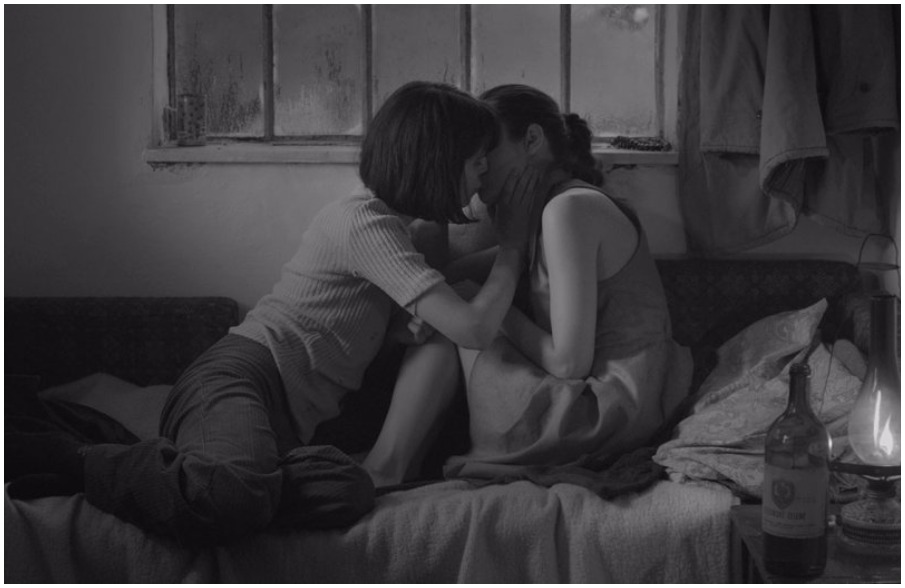Béla Tarr (1955–2026): Time, Cinema and the Ethics of Attention
Béla Tarr died on 6 January 2026. Across nine films, he transformed time into an ethical stance and cinema into an act of resistance.
Listeners:
Top listeners:
 play_arrow
play_arrow
ENGLISH Channel 01 If English is your language, or a language you understand, THIS IS YOUR CHANNEL !
 play_arrow
play_arrow
ITALIAN Channel 02 Se l’italiano è la tua lingua, o una lingua che conosci, QUESTO È IL TUO CANALE!
 play_arrow
play_arrow
EXTRA Channel 03 FRED Film Radio channel used to broadcast press conferences, seminars, workshops, master classes, etc.
 play_arrow
play_arrow
GERMAN Channel 04 Wenn Ihre Sprache Deutsch ist, oder Sie diese Sprache verstehen, dann ist das IHR KANAL !
 play_arrow
play_arrow
POLISH Channel 05
 play_arrow
play_arrow
SPANISH Channel 06 Si tu idioma es el español, o es un idioma que conoces, ¡ESTE ES TU CANAL!
 play_arrow
play_arrow
FRENCH Channel 07 Si votre langue maternelle est le français, ou si vous le comprenez, VOICI VOTRE CHAINE !
 play_arrow
play_arrow
PORTUGUESE Channel 08
 play_arrow
play_arrow
ROMANIAN Channel 09 Dacă vorbiţi sau înţelegeţi limba română, ACESTA ESTE CANALUL DUMNEAVOASTRĂ!
 play_arrow
play_arrow
SLOVENIAN Channel 10
 play_arrow
play_arrow
ENTERTAINMENT Channel 11 FRED Film Radio Channel used to broadcast music and live shows from Film Festivals.
 play_arrow
play_arrow
BULGARIAN Channel 16 Ако българският е вашият роден език, или го разбирате, ТОВА Е ВАШИЯТ КАНАЛ !
 play_arrow
play_arrow
CROATIAN Channel 17 Ako je hrvatski tvoj jezik, ili ga jednostavno razumiješ, OVO JE TVOJ KANAL!
 play_arrow
play_arrow
LATVIAN Channel 18
 play_arrow
play_arrow
DANISH Channel 19
 play_arrow
play_arrow
HUNGARIAN Channel 20
 play_arrow
play_arrow
DUTCH Channel 21
 play_arrow
play_arrow
GREEK Channel 22
 play_arrow
play_arrow
CZECH Channel 23
 play_arrow
play_arrow
LITHUANIAN Channel 24
 play_arrow
play_arrow
SLOVAK Channel 25
 play_arrow
play_arrow
ICELANDIC Channel 26 Ef þú talar, eða skilur íslensku, er ÞETTA RÁSIN ÞÍN !
 play_arrow
play_arrow
INDUSTRY Channel 27 FRED Film Radio channel completely dedicated to industry professionals.
 play_arrow
play_arrow
EDUCATION Channel 28 FRED Film Radio channel completely dedicated to film literacy.
 play_arrow
play_arrow
SARDU Channel 29 Si su sardu est sa limba tua, custu est su canale chi ti deghet!
 play_arrow
play_arrow
“Conversation with” at the 20th Marrakech IFF, interview with actor Willem Dafoe Bénédicte Prot

 play_arrow
play_arrow
Director Petr Kazda talks about "I, Olga Hepnarová" #KVIFF2016 fredfilmradio
PODCAST | Matt Micucci interviews Petr Kazda, co-director of the film I, Olga Hepnarová from the 51st Karlovy Vary International Film Festival
“This is my verdict. I, Olga Hepnarová, a victim of your brutality, sentence you to death by vehicle.” These are the haunting words written by a young woman, Olga Hepnarova, before running over a crowd of random people walking down a street, with a truck. The haunting story, which took place in Prague, then Czechoslovakia, in 1973, is the starting point with which directors Petr Kazda and Tomas Weinreb imagined the reasons behind such a senseless and famous act of everyday terrorism.
We caught up with Kazda, who screened the film I, Olga Hepnarova as part of a section dedicated to some of the best titled Czech cinema had to offer over this past year.
We had a chance to talk about why he believes this particular story still resonates with present times. We also asked him about his collaboration with the lead actress, who dominates the action on-screen, and the director even tells us why the choice of casting Michalina Olszanska, a Polish actress playing a Czech female, made so much sense. In addition, we also talk about the specific style, such as the use of black and white and mostly still camerawork, as well as the challenges of constructing a story around an anti-hero, compared to a character that is meant to be liked and admired by the audience, and a female anti-hero at that.
I, OLGA HEPNAROVA: Normalization-era Prague, July 10, 1973. A 22-year-old woman by the name of Olga Hepnarova borrows a Praga truck and heads for the tram stop at Strossmayer Square. Once there, she steps on the gas and slams into a group of 30 people, killing eight. She later admits to the mass murder, explaining that she was punishing a heartless society for tormenting her. Two years later she was hanged, the last woman to be executed in Czechoslovakia. Just as she had wanted. In their debut picture, without glossing over the guilt for a brutal crime, directors Tomas Weinreb and Petr Kazda focus in on several key years and moments in the life of a lonely person. The dark and dispassionate drama, composed in part from long, carefully constructed shots, features a powerful performance by Polish actress Michalina Olszanska, whose Hepnarova is just as inscrutable as her act. Premiered at Berlin, this black-and-white film is one of the strongest Czech entries of the year.
Written by: fredfilmradio
I Olga Hepnarova Matt Micucci Petr Kazda
Guest
Petr KazdaFilm
I Olga HepnarovaFestival
Karlovy Vary Film FestivalNo related posts.
Béla Tarr died on 6 January 2026. Across nine films, he transformed time into an ethical stance and cinema into an act of resistance.
An exclusive interview with Simone Gandolfo, President of Valle d’Aosta Film Commission, on Focus London 2025 and why the Alpine region is a hidden gem for film and TV producers.
todayDecember 12, 2025 5
Wim Wenders will preside over the International Jury of the 76th Berlinale, overseeing the selection of the Golden and Silver Bears in February 2026.
todayDecember 12, 2025 2
Jacopo Chessa, director of Veneto Film Commission, on Focus London 2025 and a standout year spanning Cannes, Venice and global productions.





© 2023 Emerald Clear Ltd - all rights reserved.